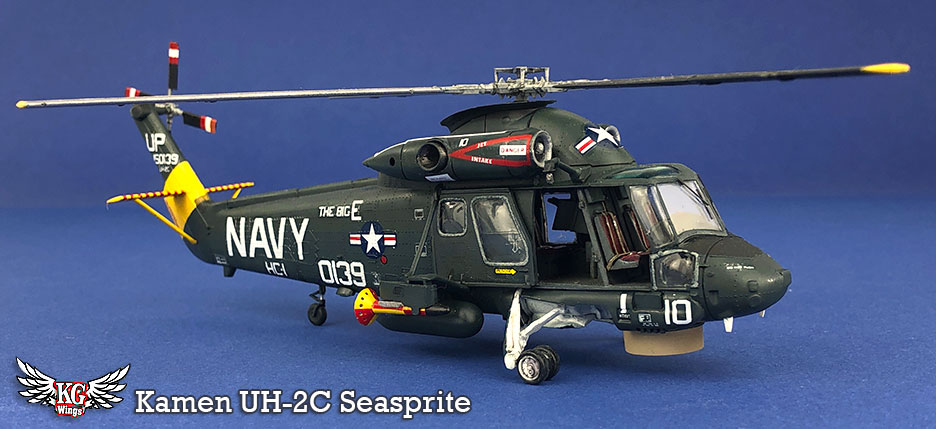 |
In the late 1950s, the United States Navy put out requests for a fast and compact naval helicopter suitable for utility missions.
|
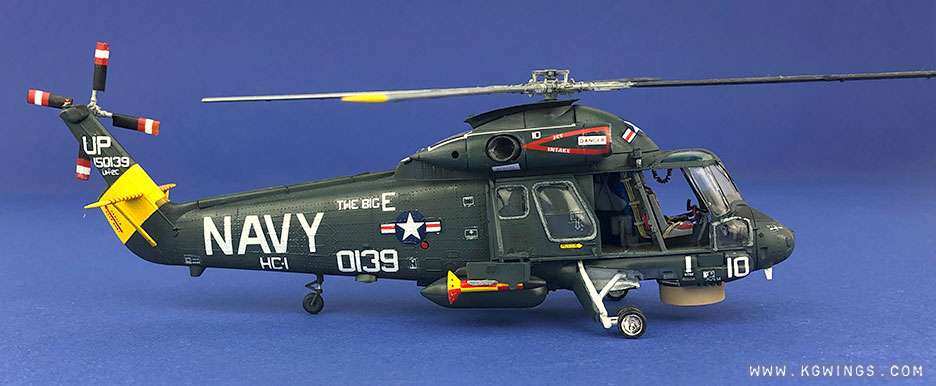 |
On July 2, 1959 the Kamen Aircraft Corporation prototype Seasprite (HU2K-1) made it's first successful flight.
|
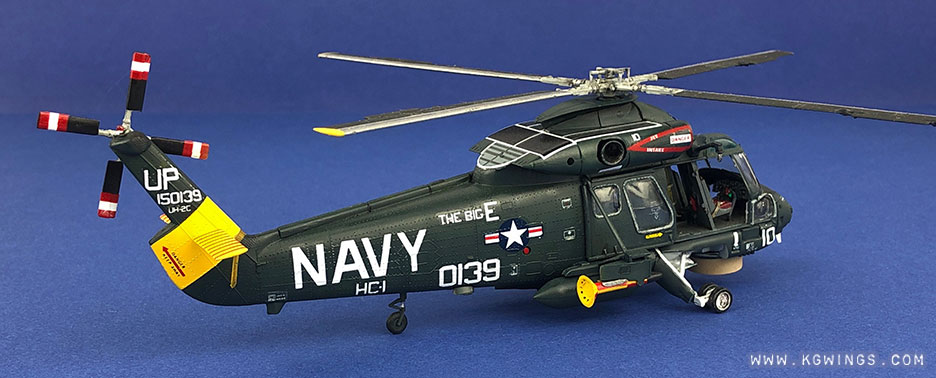 |
| The Seasprite was designed to operate from the restricted decks of US Navy warships so it was made very compact. It was one of the first helicopters to be fitted with haul-down and deck locking gear, folding rotor blades and a nose that folds to the side to reduce it's length. |
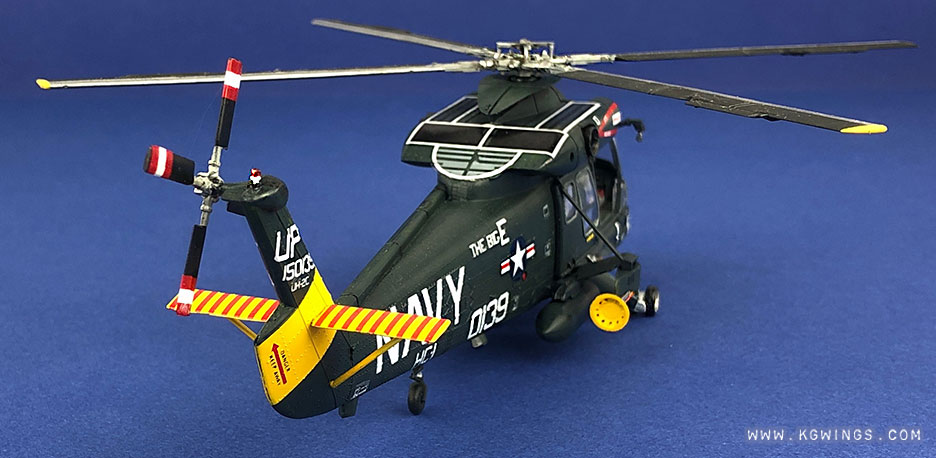 |
Although production ended in 1969 (with 190 built), the Sea sprite was continually upgraded and remained on active fleet duty with the US Navy until 1994 when it was reassigned to serve with Naval Reserve squadrons only.
|
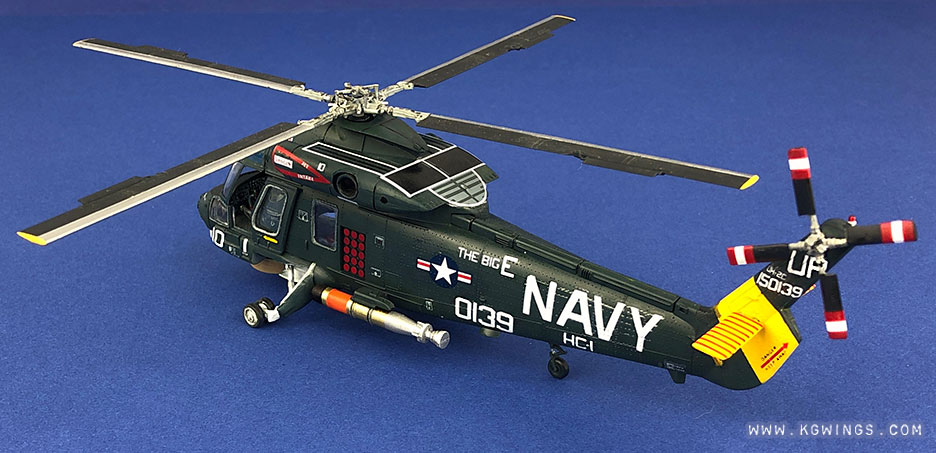 |
US Navy Seasprites saw over 600 deployments and flew 1.5 million flight hours before the last of the type were finally retired in mid-2001. Ten of these aircraft were upgraded to the SH-2G "Super Seasprite" and are in active service with the
Royal New Zealand Navy today. |
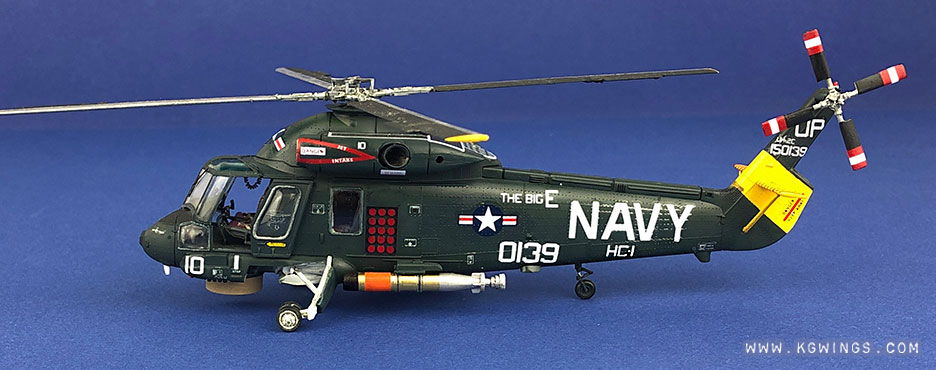 |
| This Airfix/MPC kit is surprisingly good in a lot of ways. The overall shape and level of detail is much better than the Fujimi kits available in this scale. |
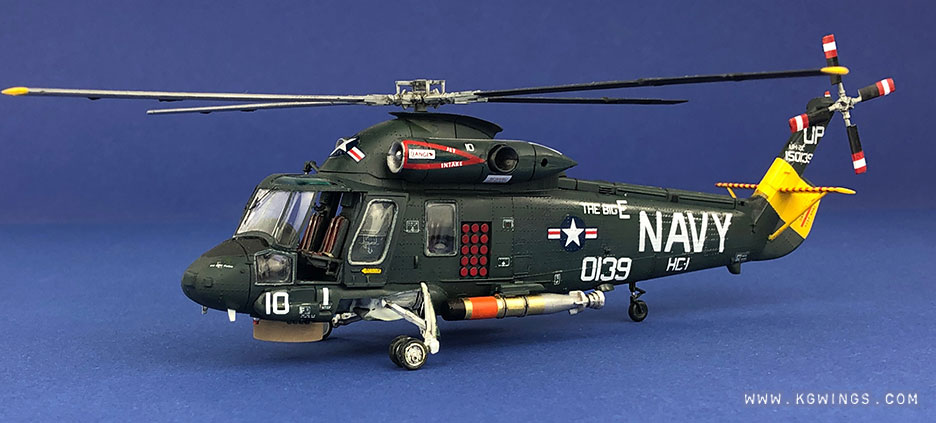 |
| Crew doors can be modeled in open or closed position, and the front landing gear can modeled up or down. There is a lot of variation in the paint schemes for the Mk. 46 Anti-Submarine Torpedo, I just chose one that was interesting, I make no promise this is the correct scheme for this time period. |
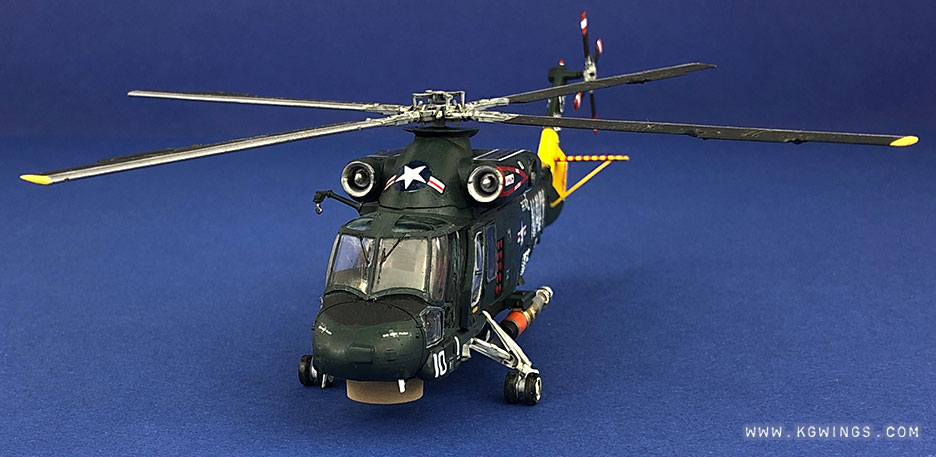 |
| The canopy is molded with windscreen wipers in place, they are a bit too thick to look real so I sanded them away, polished and made new wipers out of stretches sprue. |
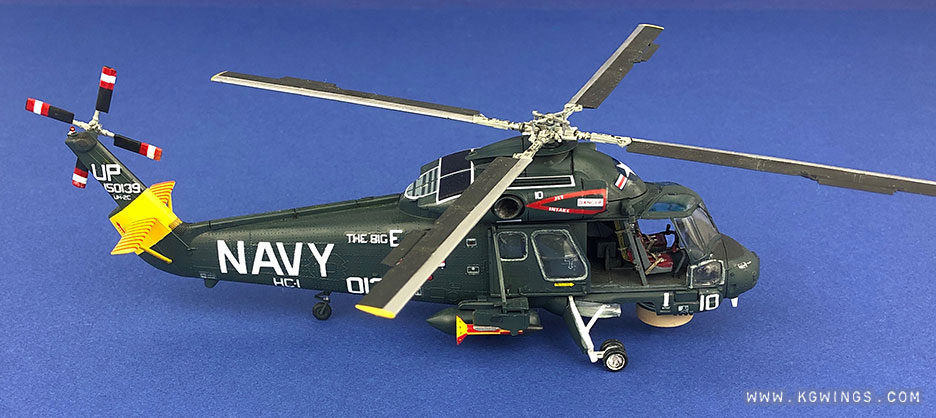 |
| I used strips of masking tape to make seat harnesses and wire for buckles. The overhead windows were painted on the inside with a mix of transparent blue/green acyric. |
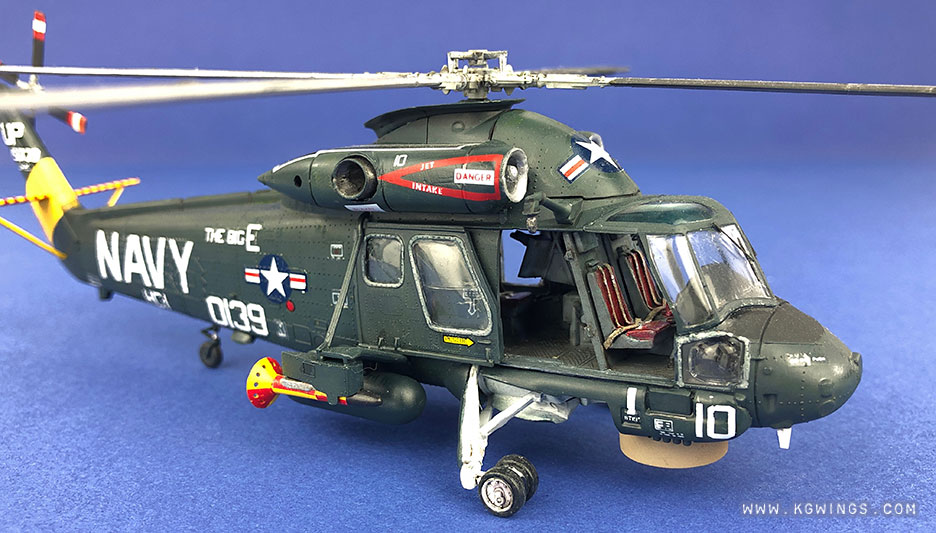 |
| Painting the red/yellow checker pattern on the MAD "bird" required some careful masking, and drilling out the perforated holes in the basket required a few curse words, but it was well worth the extra attention in the end. |
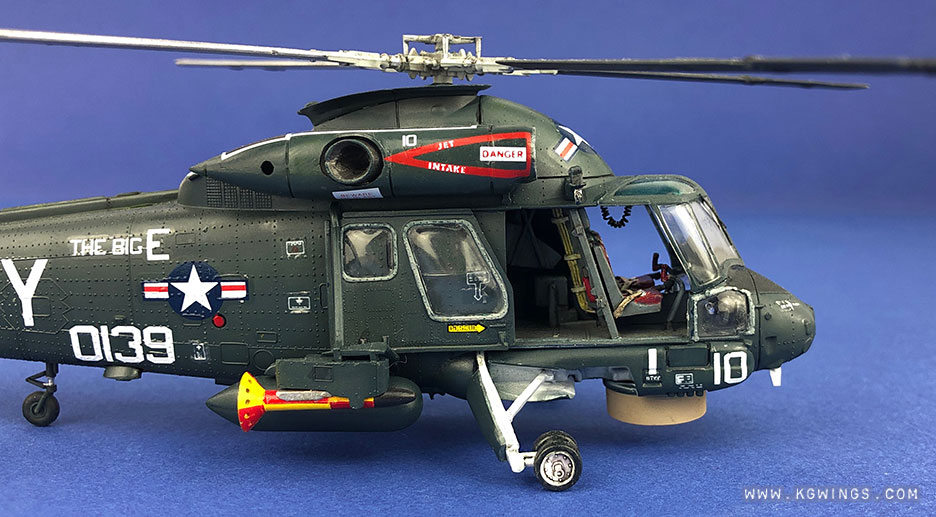 |
| I used strands of wire bundled together with masking tape to represent the electrical harnesses on the cabin bulkhead. Coiled wire was used to represent the communication cable hanging from the roof. |
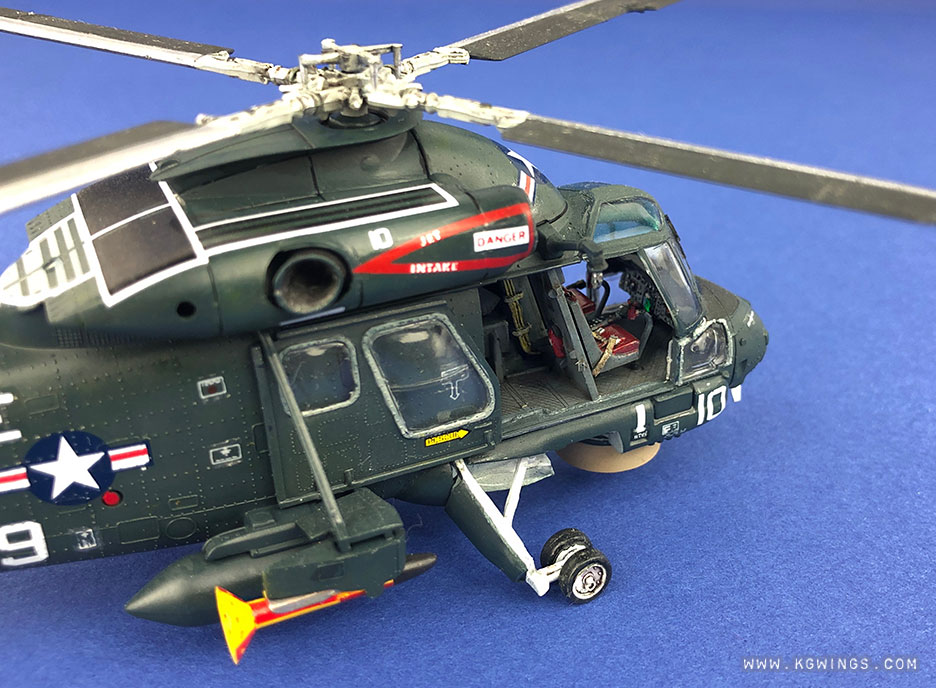 |
| The cabin floor was molded smooth with no detail so I scribed a texture using an x-acto blade, I couldn't find a photo to go by so I used artistic license on the pattern. |
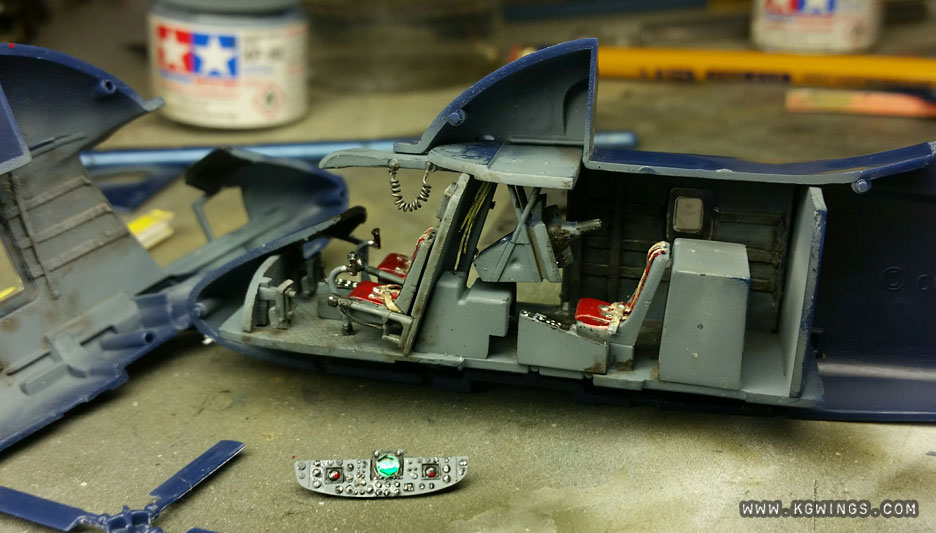 |
| This is the cabin interior nearing completion. I used drops of clear epoxy over the painted gauges to give more of a 3D effect. |
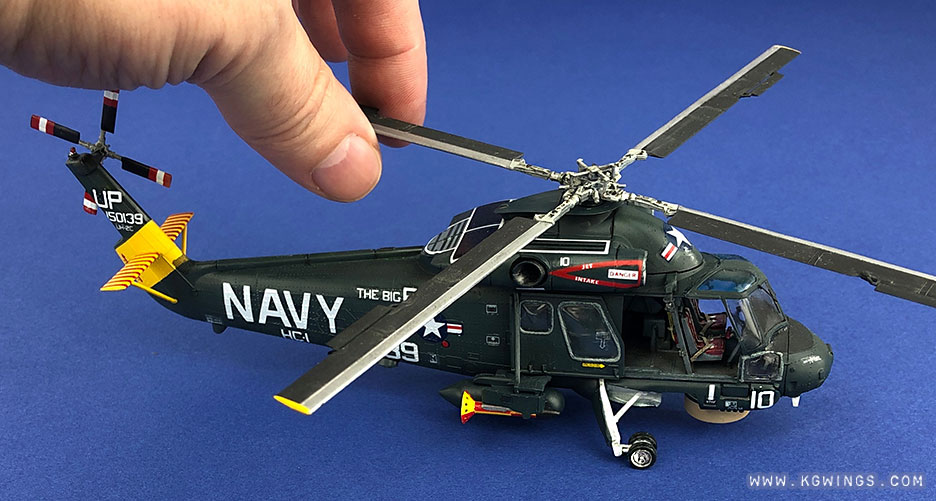 |
| I had a good time building this kit. The thick transparent parts are somewhat of a drawback but not unexpected on an Airfix kit this old. It will look nice straight out of the box but much better if you're willing to make a few custom improvements. |
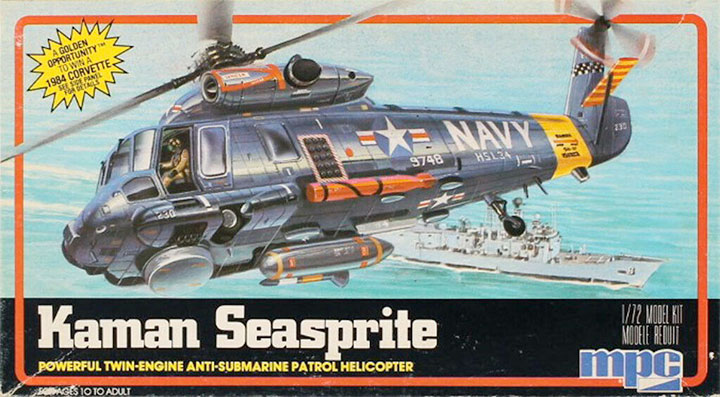 |

Kit: MPC #1-4210
|

Scale: 1/72 |
Value:
At the time of posting this kit can be found on ebay for less than $20 (US). This is a very good value for a kit that builds up nicely. |
The Kit:
Approximately 106 parts molded in blue.
Approximately 9 parts molded in clear.
1 double-sided black and white instruction sheet.
1 decal sheet with markings for aircraft 9748 while operating with Helicopter Anti-submarine Squadron 34 (HSL-34) around the year 1983.
|
Assembly:
This kit was originally released by Airfix in 1983. Parts require a reasonable amount of cleanup. Generally parts fit well, especially for a kit of this era. There is a mix of nice recessed panel lines with raised rivets. While raised rivets can sometimes ruin a kit, these are nicely done and represent the bumpy surface of the real aircraft fairly well.
Assembly starts in the cabin
where an above average amount of details are provided. Three basic crew figures and basic seats are provided. Two sets of control sticks, collectives and anti-torque pedals are provided. The Sensor Operator (SENSO) station in the rear cabin is a really nice touch and a shame you can't see it better once installed.
Transparent window parts are thick but not bad enough to ruin the kit. Cabin doors can be positioned opened or closed.
Rotors and hubs are nicely done with very crisp detail.
Parts are included to position landing down or retracted.
External stores included are: Mk. 46 Anti-Submarine Torpedo, AN/ASQ-81 Magnetic anomaly detector (MAD) towed body, and an external fuel pod.
My kits decals were close to 40 years old so they were worthless so I used a Microscale Decal set.
|
Custom Modifications:
Masking tape seat harnesses added.
Canopy floor texture made by scoring with a knife blade.
Coiled wire used for roof communication cable.
Strips of styrene used to make cabin wall framing structure.
Windshield wiper detail removed from transparency and replaced with stretched sprue parts.
Strands of electrical wire bundled with tape
added to rear bulkhead to represent electrical harnesses.
Dilled holes in MAD "bird" body.
|
After-market Decals used:
Microscale Decal # 72-395. Options provided for:
1. SH-2F, Serial # 150139 HC-1 of the U.S.S. Enterprise, 1965.
2. SH-2F, Serial # 150179 HSL-33 of NAS Lemoore, Fresno, California, 1980.
3. SH-2F, Serial #149772 HC-1 of USS Bon Homme Richard. |
Recommendation:
This classic kit is easy enough for a beginner but it has a nice level of detail so an experienced modeler will appreciate it just as well. I had a great time building this kit and recommend it for any fan of small scale helicopters. |